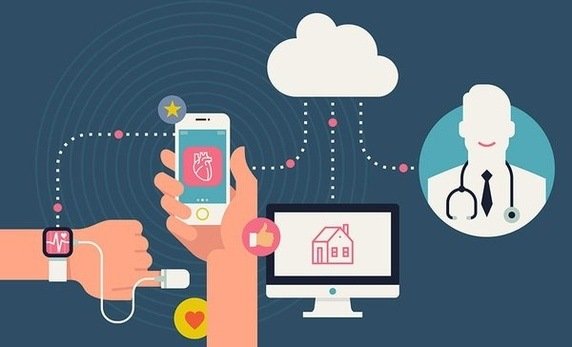The healthcare industry has seen a significant digital transformation in recent years, with mobile apps becoming an essential tool for patients, doctors, and healthcare providers. From telemedicine consultations to fitness tracking, medication management, and mental health support, healthcare apps are delivering value across multiple domains. However, building an app is just the first step. To ensure long-term sustainability and profitability, healthcare businesses need to focus on effective monetization strategies. Partnering with a reliable healthcare app development company can help you build a robust, feature-rich platform while incorporating monetization models that maximize revenue.
Why Monetization is Critical for Healthcare Apps
While healthcare apps provide tremendous value to users, developing and maintaining them involves significant investment. Custom healthcare app development ensures the app meets specific business goals and regulatory compliance standards such as HIPAA and GDPR. To recover costs and generate profit, integrating monetization strategies is essential. Successful monetization not only sustains operations but also allows continuous updates, feature enhancements, and improved healthcare app development services.
Popular Monetization Models for Healthcare Apps
Healthcare apps can adopt several monetization models depending on their target audience, app type, and features. Here are some widely used strategies:
1. Freemium Model
In the freemium model, the app is free to download, but users pay for premium features such as advanced analytics, personalized health plans, or teleconsultation services. This approach attracts a larger user base and encourages conversions to paid tiers. Healthcare app development companies can implement secure payment gateways, subscription management systems, and tier-based access to ensure smooth operations.
Example: A fitness or wellness app may allow users to track basic metrics for free while offering personalized diet and exercise plans for premium subscribers.
2. Subscription Model
Subscription models are highly effective for apps offering ongoing services such as telemedicine, chronic disease management, or mental health support. Users pay a monthly or yearly fee for uninterrupted access to services. Subscriptions provide predictable revenue streams, making them ideal for scaling and maintaining quality services.
Custom healthcare app development allows flexibility in creating subscription tiers that offer different levels of access, from basic services to premium consultations or AI-driven insights.
3. Pay-Per-Use Model
In a pay-per-use model, users pay only for the services they consume. This model works well for telemedicine apps or apps offering specialized consultations, diagnostic reports, or wellness coaching. Healthcare app development services can integrate secure in-app payment solutions and automated billing systems to streamline transactions.
Example: Patients pay for individual doctor consultations or lab tests rather than subscribing to a full package.
4. Advertising and Sponsored Content
Healthcare apps with high user engagement can leverage advertising and sponsored content as a revenue source. Apps may display banners, in-app promotions, or educational sponsored content from healthcare providers, pharmaceutical companies, or wellness brands.
While monetization through ads is effective, custom healthcare app development ensures that advertisements are non-intrusive, relevant, and compliant with medical regulations.
5. Affiliate Marketing
Affiliate marketing allows healthcare apps to earn commissions by promoting relevant products or services. Fitness apps, wellness apps, or telemedicine platforms can recommend supplements, medical devices, or online therapy sessions. Each referral generates revenue, making it a passive yet effective monetization strategy.
A professional healthcare app development company can integrate affiliate networks and track performance to maximize revenue opportunities.
Key Features That Boost Monetization
Certain app features can significantly enhance revenue potential and user retention. Top healthcare app development services often include these in their custom solutions:
-
In-App Purchases: Enable users to buy premium features, personalized plans, or virtual consultations.
-
Push Notifications: Promote new services, subscription offers, or special discounts to increase engagement.
-
AI and Personalization: Provide customized health recommendations to encourage premium upgrades.
-
Loyalty Programs: Reward regular users with discounts or perks, motivating continued use.
-
Multi-Language Support: Expands the target audience and improves accessibility, driving more users to premium services.
Integrating these features through custom healthcare app development ensures a seamless, secure, and scalable experience for users.
Challenges in Monetizing Healthcare Apps
Monetizing healthcare apps comes with unique challenges that businesses must navigate carefully:
-
Regulatory Compliance: All monetization strategies must comply with healthcare regulations like HIPAA, GDPR, and FDA guidelines.
-
User Trust: Users are cautious about paying for healthcare services online. Transparency and security are vital.
-
Market Competition: The healthcare app market is highly competitive, making it essential to offer unique value through features and services.
Working with an experienced healthcare app development company helps address these challenges while creating a monetization-friendly infrastructure.
Tips for Successful Monetization
To maximize revenue, consider these best practices:
-
Understand Your Target Audience: Identify user needs and willingness to pay for services.
-
Offer Multiple Payment Options: Support credit/debit cards, digital wallets, UPI, and other local payment methods.
-
Implement Tiered Pricing: Cater to different segments by offering basic, standard, and premium packages.
-
Focus on Retention: Retaining existing users is more cost-effective than acquiring new ones. Use engagement features like notifications, loyalty programs, and personalized recommendations.
-
Leverage Analytics: Track user behavior to identify monetization opportunities and optimize strategies.
Custom healthcare app development allows these features to be integrated in a tailored manner, maximizing both usability and revenue.
Conclusion
Healthcare apps have immense potential to transform patient care, streamline operations, and generate revenue. However, successful monetization requires a combination of effective business models, engaging features, and secure infrastructure. Whether you choose a freemium model, subscription, pay-per-use, advertising, or affiliate marketing, it is critical to implement these strategies with care.
Collaborating with a trusted healthcare app development company ensures that your app is built to deliver a seamless experience, maintain regulatory compliance, and integrate monetization strategies effectively. By leveraging healthcare app development services and investing in custom healthcare app development, businesses can create scalable, profitable apps that meet user needs while sustaining long-term growth.
With the right approach, your healthcare app can not only provide value to users but also become a successful revenue-generating platform in the rapidly evolving digital healthcare ecosystem.


